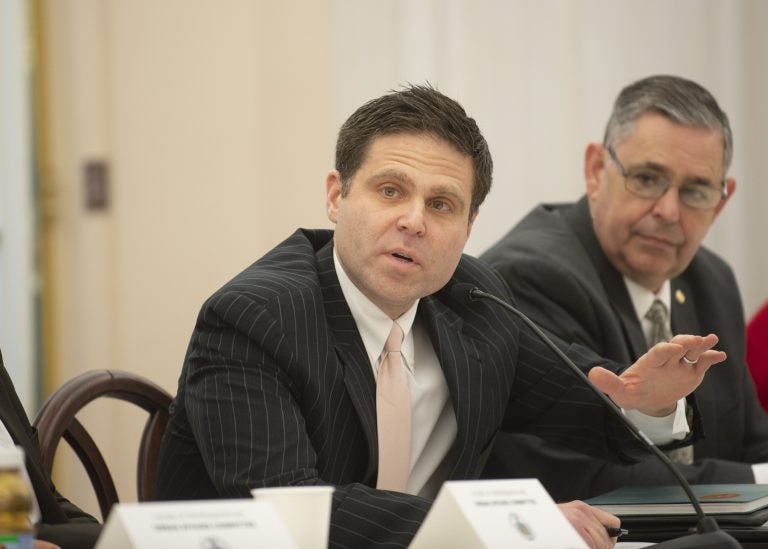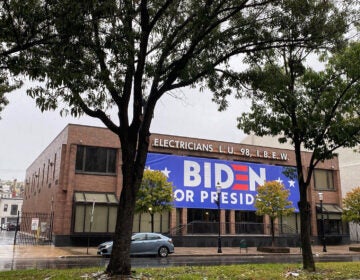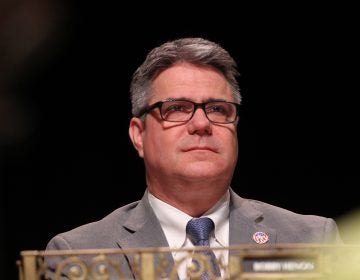Philly state Rep. wants to give voters power to oust indicted Councilman Henon
Should voters be able to remove elected officials, such as indicted Philly Councilman Bobby Henon? One state Rep. says yes.

Northeast Philadelphia state Rep. Jared Solomon wants to give voters in Pennsylvania the right to remove elected officials from office through petitions in the wake of the indictment of Philly City Councilman Bobby Henon. (Photo courtesy of Pa. state Rep. Jared Solomon's office)
Saying he’s frustrated by the presence of indicted City Councilman Bobby Henon on the Democratic primary ballot, Northeast Philadelphia state Rep. Jared Solomon wants to give Pennsylvania voters the right to remove elected officials through circulating recall petitions.
Henon was charged with bribery, fraud, and conspiracy in January along with powerful electricians’ union chief John Dougherty.
No candidates were able to secure enough nominating signatures to challenge Henon, so he’s running for reelection unopposed in the May Democratic primary.
“I’m bummed that Bobby Henon’s going to be the only person on the ballot,” Solomon said. “It’s depressing.”
So Solomon plans to introduce a bill to give Pennsylvanians power voters in 19 other states have — the ability to remove an elected official from office by getting enough signatures on recall petitions.
Pennsylvania has never had a recall provision in its constitution, though Philadelphia’s city charter had one until voters tried to exercise it to remove Mayor Frank Rizzo in 1976.
After a court battle, the state Supreme Court declared Philadelphia’s recall procedure unconstitutional and Rizzo was able to complete his term.
In New Jersey, someone seeking to recall an elected official must collect the signatures of 25 percent of the voters in the relevant jurisdiction within 160 days.
If they do that, a recall election is scheduled.
The procedure is most often used against local, rather than state officials.
Solomon’s bill doesn’t spell out the details of the recall procedure in Pennsylvania. It would amend the state constitution to enable the legislature to craft recall legislation.
An amendment to the state constitution must be approved in two successive sessions of the legislature and then submitted to voters in a statewide referendum, so even if his initiative is successful, an effort to oust Henon couldn’t be set in motion for at least a couple of years.
But Solomon said the proposal isn’t just about Henon.
“There’s case after case where you have individuals under indictment, and they continue to serve,” Solomon said, “and the voters did not have that constitutional ability to remove that elected official.”
Solomon said he’s gathering co-sponsors to the legislation, and he plans to introduce it soon.
Efforts to reach Henon for comment were unsuccessful.
‘It’s a terrible idea’
Bruce Ledewitz, a constitutional scholar from the Duquesne University Law School in Pittsburgh doesn’t like the proposal.
“It’s a terrible idea,” he said in a phone interview.
Ledewitz said states whose constitutions were written or re-written in the Progressive Era in the early 20th century tend to have recall provisions, and he said they aren’t well-served by them.
“In almost all instances in our highly-polarized period, these things are weaponized and are not used for their original intended purpose,” Ledewitz said.
He cited bitter recall battles in Wisconsin and other states where parties and political factions have used recall provisions to fight over policy differences, rather than remove officials who’ve betrayed the public trust.
Ledewitz said Pennsylvania politicians at least manage to talk to each other in the legislature in these polarized times, in part because the state doesn’t have a recall procedure.
“There’s no reason to make it worse by adopting new mechanisms for us to fight with each other,” he said.
Local 98 money
When Solomon called for Henon’s resignation, he drew accusations of hypocrisy from Dougherty’s camp.
It turns out when Solomon was running to win his seat in 2015 and 2016, he accepted $30,000 from political committees associated with Dougherty’s union, Local 98 of the International Brotherhood of Electrical Workers.
Brian Eddis, a local 98 official and treasurer of one of the committees, Concerned Irish Americans of Philadelphia, sent Solomon a letter demanding that he return the $25,000 the committee donated to his campaign.
Solomon said he found the demand curious, but that he isn’t returning any money. He said he’ll donate $30,000 to non-profits in his district that serve children.
Eddis didn’t respond to a request for comment.
WHYY is your source for fact-based, in-depth journalism and information. As a nonprofit organization, we rely on financial support from readers like you. Please give today.





